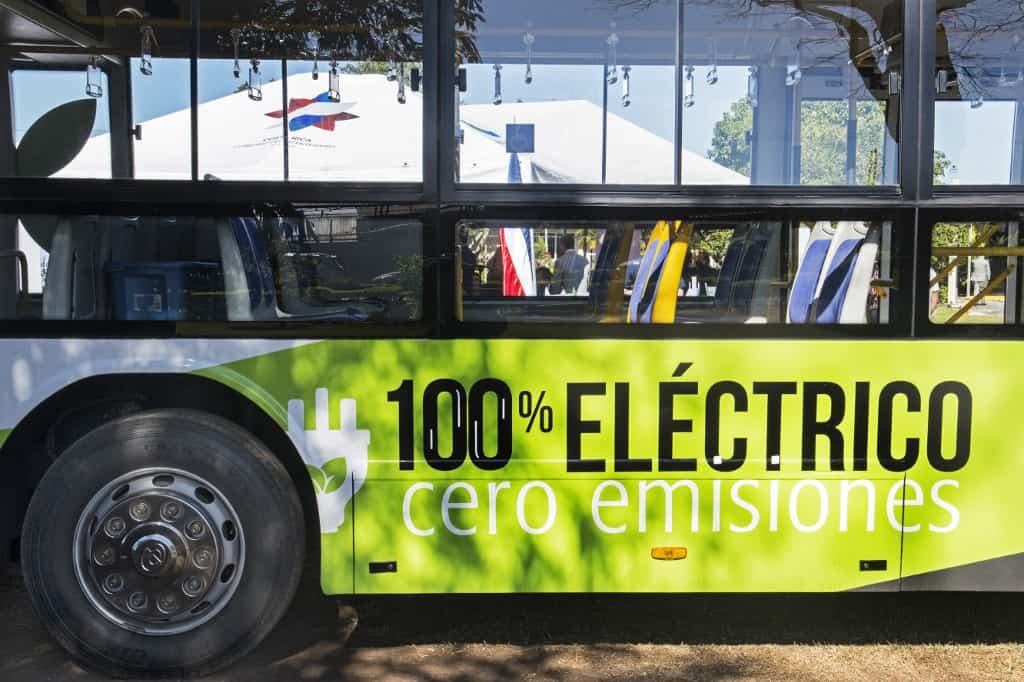Costa Rica on Tuesday launched its first electric bus service, marking the official start of a pilot plan that aims to electrify transportation throughout the capital.
The inaugural route — from Desamparados to downtown San José — was commemorated at a ceremony by President Carlos Alvarado, First Lady Claudia Dobles, Transport Minister Rodolfo Mendez and other Costa Rican leaders.
“It’s an important step toward the modernization of public transport,” Mendez said.
President Alvarado noted that electric energy is cheaper than fossil fuels, in addition to generating a smaller environmental and noise footprint.
“Our transport sector is the one that generates the most emissions,” said Andrea Meza, Environment Minister. “This is because we use vehicles that use hydrocarbons, that use combustion engines.
“This is a relevant landmark because it lets us reduce the contamination in the air. It’s not just sound pollution, but we’re breathing better air, and that is fundamental in our decarbonization goals.”
The first electric buses will serve as a business model for other providers of public transport. Most routes are operated by private companies that have received a concession for the route from the Costa Rican government.
The electric bus operating the San José-Desamparados route was donated by the German cooperation agency (GIZ). The pilot plan will contemplates electric buses circulating on 12 routes in downtown San José, mountainous areas and coastal areas to help prepare the country for the spread of electric transport.
Costa Rica in 2018 launched its National Decarbonization Plan that seeks to suppress the use of these fuels by 2050, and mass transport is a central component of that goal.
“This is a first big step towards our goal that, by 2035, 30% of the public transport fleet is zero emissions, as the National Decarbonization Plan says,” Meza said.
Over the last six years, Costa Rica has generated at least 98% of its electricity through renewable means.






